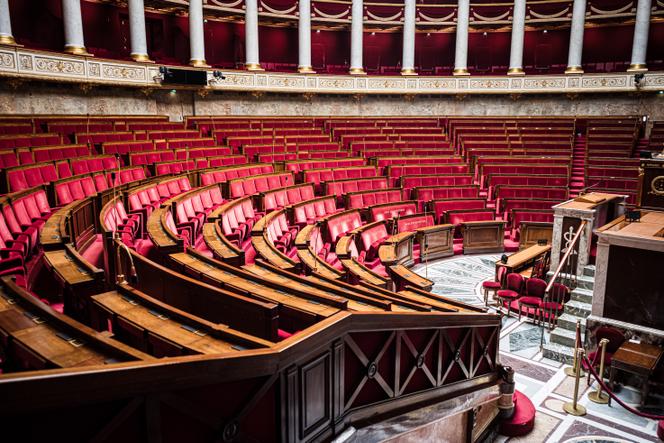


The vast majority of members of France's Assemblée Nationale – freshly elected or re-elected after early parliamentary elections on June 30 and July 7 – have officially joined one of the Assemblée Nationale's political groups at the inaugural session on Thursday, July 18. A parliamentary group has different prerogatives depending on whether it is a majority, opposition or minority group. This session is particularly important because the chamber lacks an absolute majority and is currently made up of three party blocs of similar size. The aim for a group is to be as large as possible so as to influence the legislative process. The size of the group determines its financial resources, its representation on the Assemblée's Bureau (responsible for internal organization and operation) and standing committees, and its speaking time in public sessions.
The presidents of each group play strategic roles. They sit on the Conference of Presidents, which organizes MPs' work, and on certain office meetings. They help set the Assemblée's agenda. They also have numerous prerogatives in terms of legislative procedure and how sessions are conducted (suspension of sitting or public vote, for example).
While membership of one of the political families is most often based on the partisan affiliation of elected representatives, some groups also bring together MPs from several parties, particularly when they do not have enough elected representatives – 15 are required – to create a group.
At the end of the 2022 parliamentary elections, the Nouvelle Union Populaire Ecologique et Sociale (NUPES, former left-wing alliance) MPs were divided into four parliamentary groups: 75 LFI, 31 Socialists, 23 Greens and 22 Gauche démocrate et républicaine members (Democrat and Republican Left), including the Communists. In 2024, the NFP had 193 elected members, still divided into four groups, two of almost equal size.
Seventy-four MPs were elected under LFI, but not all of them have joined the group.
Five party members, dissident candidates, have left the ranks of LFI and were welcomed into the Greens group in a unanimous vote on Monday, July 15.
This group will be larger than in 2022, when it counted 23 MPs, both because of the ecologist surge recorded on July 7, with 28 elected members, and because of the arrival of former LFI members. LFI dissidents Clémentine Autain, Alexis Corbière, Hendrik Davi, François Ruffin and Danièle Simonnet will sit in this group. Their arrival reflects the change of the group's name to include the "social."
With 66 MPs elected under the Socialist label, the Socialist group is set to more than double in size compared to 2022 (31 MPs).
The GDR group includes Communist MPs and MPs from the French overseas territories.
In 2022, three groups made up Macron's Ensemble governing coalition, with 250 MPs: 172 Renaissance, 48 MoDem and independents and 30 Horizons and those affiliated. There are now just 166 members, organized into three groups.
According to the Elysée count, 97 of the 99 MPs elected under the Renaissance label on July 7 have attached themselves to this parliamentary group.
MP Sacha Houlié will sit as a non-attached member. He had hoped to form a group ranging "from the social right to the socialist left," but "for the moment [he is] alone," he admitted on French radio on Wednesday morning.
The La Droite Républicaine group is set to shrink considerably; LR had 62 MPs after the 2022 elections.
From 89 MPs in 2022, the RN now has 126, which makes it the largest group. It is still unknown whether Daniel Grenon, invited by the RN not to sit in the group following his racist remarks in the regional daily L'Yonne républicaine, will be part of the group or not.
This political family will also be able to count on the support of the new parliamentary group formed by Eric Ciotti.
With 16 LR MPs having chosen to join forces with the RN, Ciotti has passed the threshold of 15 elected representatives required to form a group. The disputed LR president will thus be able to participate in parliamentary debates. For example, he will have the right to request adjournments or votes by public ballot.
Stéphane Lenormand was chosen by the members of the LIOT group to take over as president from Bertrand Pancher, who was defeated on July 7 during the second round of the parliamentary elections.
This cross-party political group dedicated to overseas issues had 22 members in the previous legislature, including six from overseas France. It's as yet uncertain how many overseas MPs will join LIOT this time.
Finally, as the rules of the Assemblée Nationale do not require MPs to belong to a political group, each legislature also includes a few non-attached members, albeit with less speaking time and fewer privileges. There are eight following the 2024 snap elections.
Translation of an original article published in French on lemonde.fr; the publisher may only be liable for the French version.
